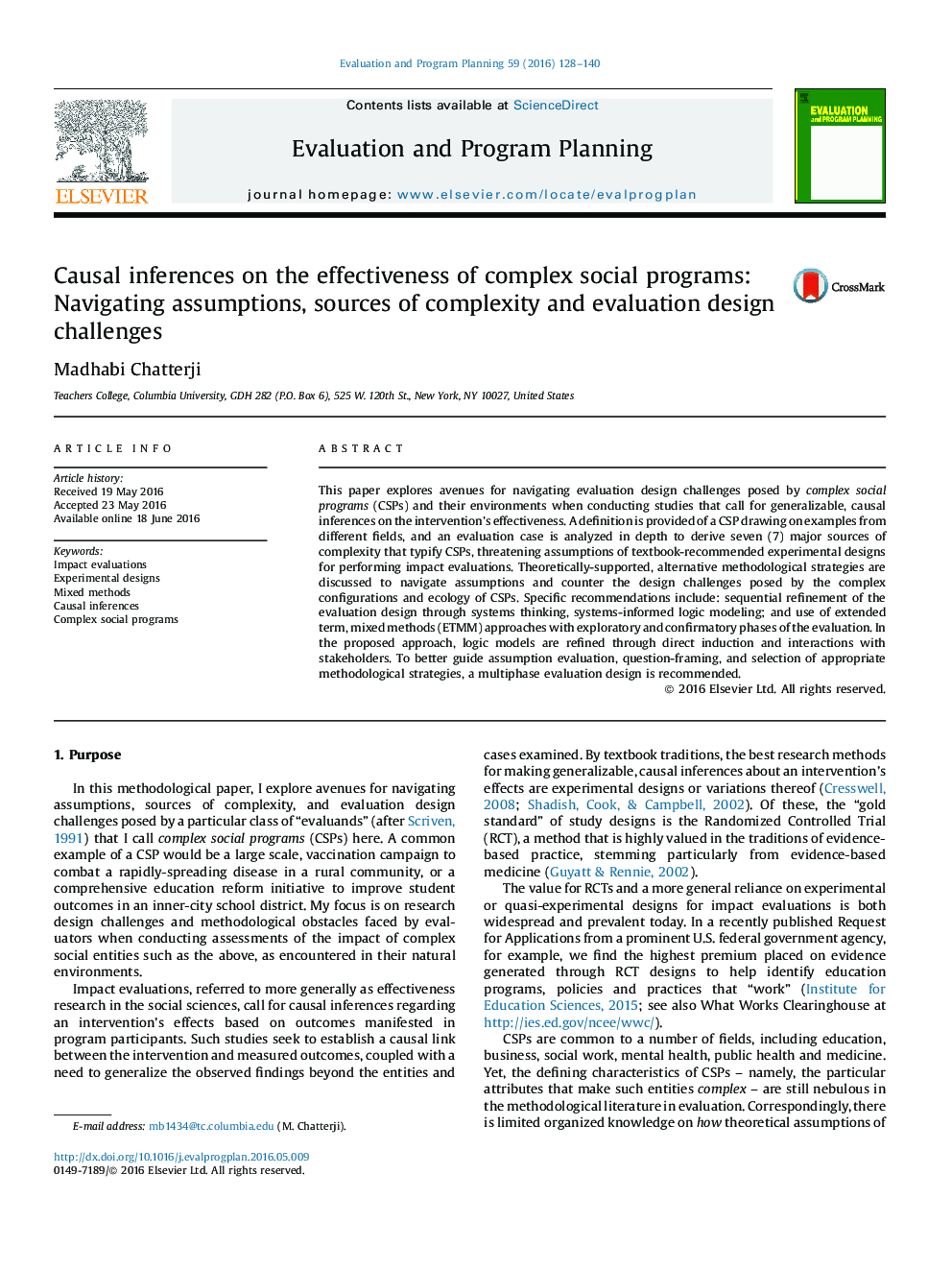| Article ID | Journal | Published Year | Pages | File Type |
|---|---|---|---|---|
| 6792426 | Evaluation and Program Planning | 2016 | 13 Pages |
Abstract
This paper explores avenues for navigating evaluation design challenges posed by complex social programs (CSPs) and their environments when conducting studies that call for generalizable, causal inferences on the intervention's effectiveness. A definition is provided of a CSP drawing on examples from different fields, and an evaluation case is analyzed in depth to derive seven (7) major sources of complexity that typify CSPs, threatening assumptions of textbook-recommended experimental designs for performing impact evaluations. Theoretically-supported, alternative methodological strategies are discussed to navigate assumptions and counter the design challenges posed by the complex configurations and ecology of CSPs. Specific recommendations include: sequential refinement of the evaluation design through systems thinking, systems-informed logic modeling; and use of extended term, mixed methods (ETMM) approaches with exploratory and confirmatory phases of the evaluation. In the proposed approach, logic models are refined through direct induction and interactions with stakeholders. To better guide assumption evaluation, question-framing, and selection of appropriate methodological strategies, a multiphase evaluation design is recommended.
Related Topics
Health Sciences
Medicine and Dentistry
Public Health and Health Policy
Authors
Madhabi Chatterji,
